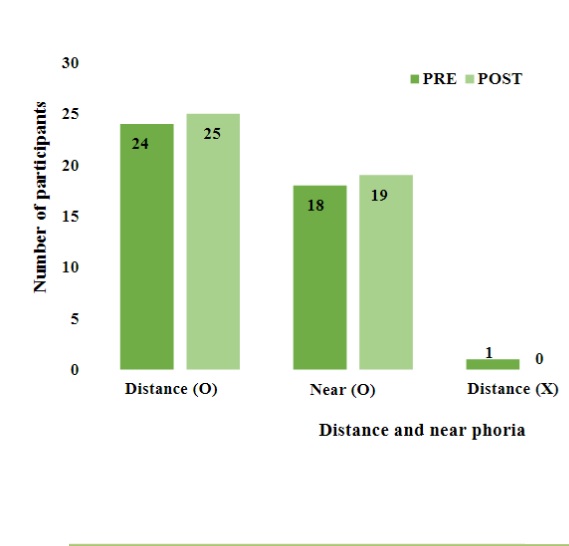Binocular vision parameters in chronic heavy alcoholics: Short-term outcomes of alcohol detoxification
Medical hypothesis, discovery & innovation in optometry,
Vol. 2 No. 3 (2021),
14 March 2022
,
Page 94-101
https://doi.org/10.51329/mehdioptometry131
Abstract
Background: Alcohol consumption is rising in developing countries such as India, and alcohol addiction has systemic and ocular impacts. This study aimed to investigate the binocular functions of chronic heavy alcoholics before and after alcohol detoxification.Methods: A prospective before–after study was designed and conducted at Treda De-Addiction Centre, Bengaluru, India. Males in the age range of 30–40 years who had been alcohol addicts for more than six years and met the inclusion criteria were recruited. We performed a routine optometric examination followed by detailed binocular vision assessment, including accommodative, vergence, and oculomotor tests on the first day of rehabilitation and one month after initiation of rehabilitation.
Results: Twenty-five males with of the age (mean ± standard deviation [SD]) 36.24 ± 4.33 years were evaluated. The pre- and post-detoxification mean ± SD of the monocular (right eye: 5.98 ± 3.50, 6.60 ± 3.49; left eye: 6.18 ± 3.69, 7.10 ± 3.78) and binocular accommodative facility (7.10 ± 3.93, 7.40 ± 4.51) did not change significantly (all P > 0.05). Eighteen (72%) of the participants had non-strabismic binocular vision anomalies (NSBVA), among whom the accommodative infacility and convergence insufficiency were higher in frequency and remained constant after alcohol detoxification. Furthermore, the binocular vision parameters showed no statistically significant difference between the pre- and post-detoxification values (all P > 0.05).
Conclusions: The binocular vision parameters did not change significantly after one month of alcohol detoxification in the chronic heavy drinkers. Most long-term alcoholics had NSBVA with no change after rehabilitation, indicating that short-term alcohol detoxification may not aid in the recovery of binocular parameters. However, further validation is required. Assessing the impact of vision therapy in addition to a longer period of abstinence can confirm or refute the persistence of observed effects of chronic alcohol consumption on binocular functions and NSBVA in this population.
Keywords:
- alcohol
- heavy alcoholic
- non-strabismus binocular vision anomalies
- alcohol detoxification
- binocular vision
- accommodation
- convergence

- Abstract Viewed: 0 times
- Full Text PDF Downloaded: 0 times